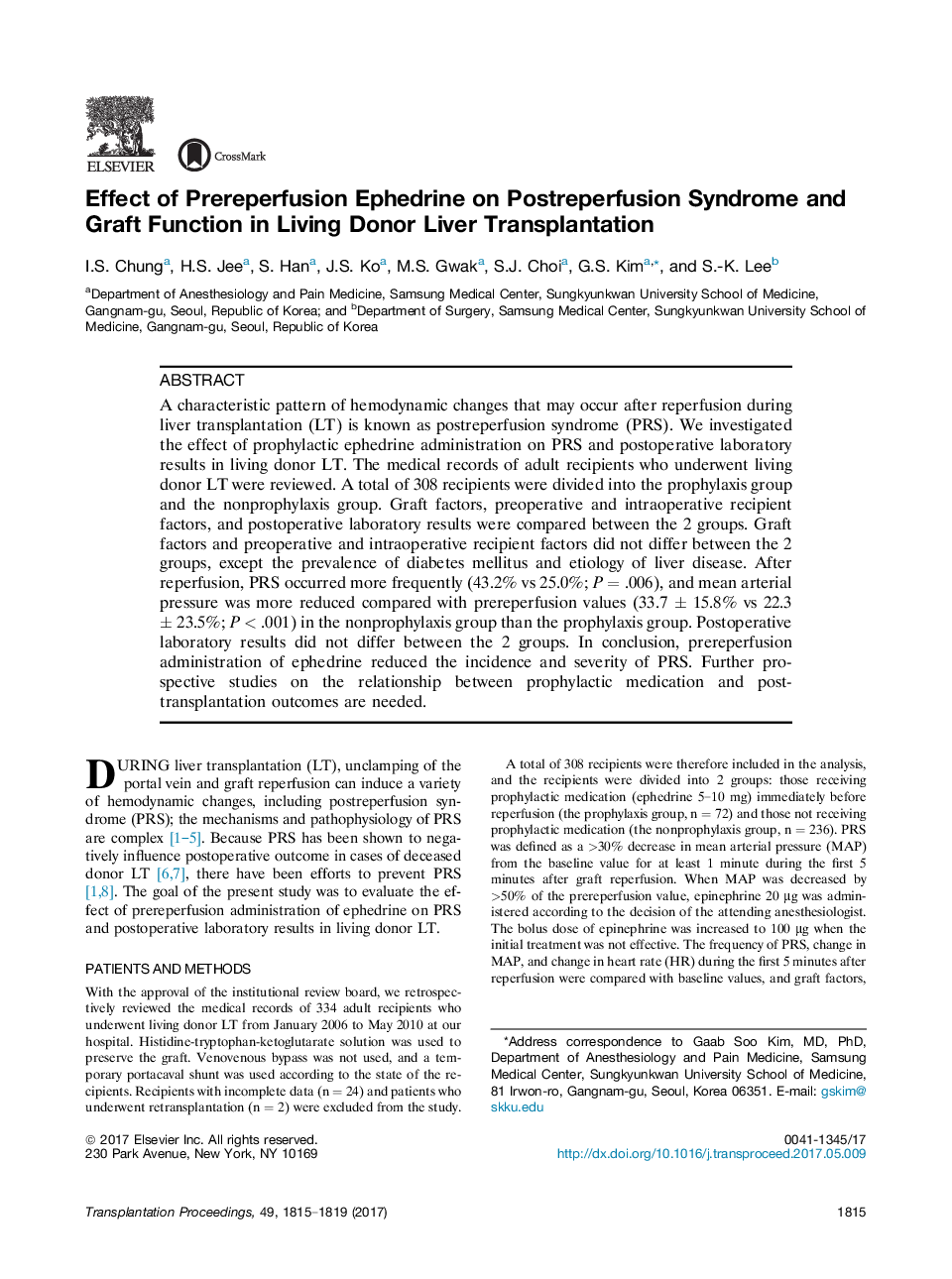| Article ID | Journal | Published Year | Pages | File Type |
|---|---|---|---|---|
| 5728636 | Transplantation Proceedings | 2017 | 5 Pages |
â¢Because postreperfusion syndrome can result in a negative postoperative outcome, there have been some efforts to prevent its occurrence.â¢This study evaluated the effects of prereperfusion ephedrine administration during living donor liver transplantation.â¢Prereperfusion ephedrine can reduce the incidence and severity of postreperfusion syndrome, without affecting postoperative graft outcome.
A characteristic pattern of hemodynamic changes that may occur after reperfusion during liver transplantation (LT) is known as postreperfusion syndrome (PRS). We investigated the effect of prophylactic ephedrine administration on PRS and postoperative laboratory results in living donor LT. The medical records of adult recipients who underwent living donor LT were reviewed. A total of 308 recipients were divided into the prophylaxis group and the nonprophylaxis group. Graft factors, preoperative and intraoperative recipient factors, and postoperative laboratory results were compared between the 2 groups. Graft factors and preoperative and intraoperative recipient factors did not differ between the 2 groups, except the prevalence of diabetes mellitus and etiology of liver disease. After reperfusion, PRS occurred more frequently (43.2% vs 25.0%; P = .006), and mean arterial pressure was more reduced compared with prereperfusion values (33.7 ± 15.8% vs 22.3 ± 23.5%; P < .001) in the nonprophylaxis group than the prophylaxis group. Postoperative laboratory results did not differ between the 2 groups. In conclusion, prereperfusion administration of ephedrine reduced the incidence and severity of PRS. Further prospective studies on the relationship between prophylactic medication and posttransplantation outcomes are needed.
